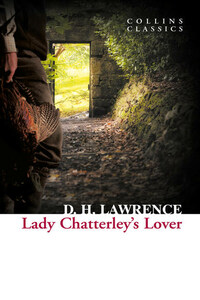In 1819, Millworker William Collins from Glasgow, Scotland, set up a company for printing and publishing pamphlets, sermons, hymn books and prayer books. That company was Collins and was to mark the birth of HarperCollins Publishers as we know it today. The long tradition of Collins dictionary publishing can be traced back to the first dictionary William published in 1824, Greek and English Lexicon. Indeed, from 1840 onwards, he began to produce illustrated dictionaries and even obtained a licence to print and publish the Bible.
Soon after, William published the first Collins novel, Ready Reckoner, however it was the time of the Long Depression, where harvests were poor, prices were high, potato crops had failed and violence was erupting in Europe. As a result, many factories across the country were forced to close down and William chose to retire in 1846, partly due to the hardships he was facing.
Aged 30, Williamâs son, William II took over the business. A keen humanitarian with a warm heart and a generous spirit, William II was truly âVictorianâ in his outlook. He introduced new, up-to-date steam presses and published affordable editions of Shakespeareâs works and Pilgrimâs Progress, making them available to the masses for the first time. A new demand for educational books meant that success came with the publication of travel books, scientific books, encyclopaedias and dictionaries. This demand to be educated led to the later publication of atlases and Collins also held the monopoly on scripture writing at the time.
In the 1860s Collins began to expand and diversify and the idea of âbooks for the millionsâ was developed. Affordable editions of classical literature were published and in 1903 Collins introduced 10 titles in their Collins Handy Illustrated Pocket Novels. These proved so popular that a few years later this had increased to an output of 50 volumes, selling nearly half a million in their year of publication. In the same year, The Everymanâs Library was also instituted, with the idea of publishing an affordable library of the most important classical works, biographies, religious and philosophical treatments, plays, poems, travel and adventure. This series eclipsed all competition at the time and the introduction of paperback books in the 1950s helped to open that market and marked a high point in the industry.
HarperCollins is and has always been a champion of the classics and the current Collins Classics series follows in this tradition â publishing classical literature that is affordable and available to all. Beautifully packaged, highly collectible and intended to be reread and enjoyed at every opportunity.
David Herbert Lawrence was a creative talent who consistently tested the boundaries of acceptability through his work. He viewed post-Victorian Britain as morally bankrupt due to the effects of industri-alization and the associated changes in social structure and was generally regarded as antiestablishment by his contemporaries. The sexual content of his literature was considered by many at the time as little more than pornography prose. While other writers merely implied instances of sexual encounter in their work, Lawrence wrote detailed descriptive accounts of his characterâs sexual exploits. He also dared to suggest that class divides were crossed for want of sexual gratification and for that he became something of a social pariah.
In his third novel; Sons and Lovers (1913), Lawrence explores the Oedipus complex â an unhealthy affection between a mother and her sons. The analytical psychologist Sigmund Freud had coined the term in 1910 and his work on psychology was very new and enticing during that period. Lawrence wrote the book, drawing upon and interpreting his own relationship with his mother. Sons and Lovers explores how difficult it can be for cosseted sons to escape the emotional ties of their mothers. The basic theme is that the protagonist, Paul Morel, always feels that his mother owns his soul even when he breaks away and takes a lover. He can therefore never fully give his soul to a lover.
Lawrence was also reportedly sexually confused in his early life. He had intimacies with young men as well as women and although in the book there are no homosexual encounters, his use of the term âloversâ does suggest that Lawrence was hinting at gender ambiguity. The book shocked polite society as it was, because the plot could be boiled down to being a contest between love and lust. The first son dies from the metaphorical crossfire between his mother and his lover, while the second is left emotional bereft and forlorn following his own battle.
Shortly after the outbreak of World War I, Lawrence married a German divorcee named Frieda Weekley. He also publicly voiced his anti-war views which were at odds with the majority of the British Public who displayed a strong fighting spirit and will to win. The German connection and his expressed contempt meant that Lawrence and his wife were treated with a good deal of suspicion. In addition to this, Lawrence was investigated for obscenity in his writing. Everything came to a head when he and his wife were accused of spying for the Germans. They lived on the Cornish coast and were accused of signalling information to German U-boats. By 1917 the Lawrences had been forced to relocate to central England, away from the coastline, with use of the Defence of the Realm Act.









